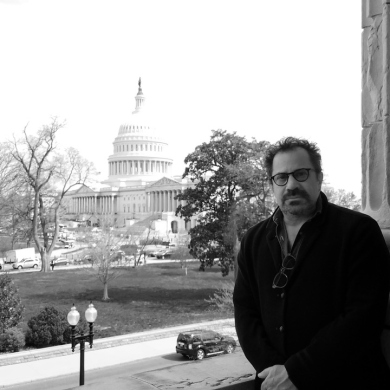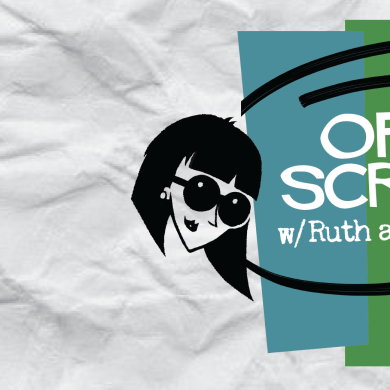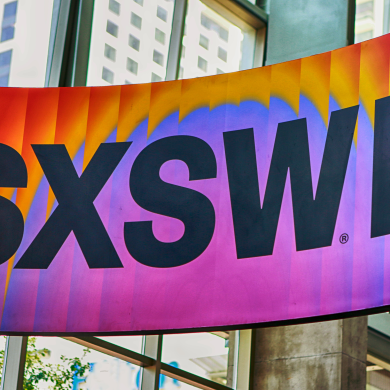By Justin Sanders
Let’s be clear – it’s difficult to make a living in any creative pursuit. However, it’s especially difficult to make a living as an author.
Say you have the temerity to actually, against all odds, write a book – which, for most people, takes years of toil and strife. Now, you actually have to get it published. These days, most of the major publishing houses will not even consider unsolicited material, which means you’ll need to get your book into the hands of an agent. Or, you could try querying a smaller house. Either way, you’ll be sending the manuscript to an office that receives thousands of submissions every year (this agent claims she receives upwards of 10,000 annually, and that she is far from alone) and accepts only a tiny percentage for representation or publication.
If you defy the odds and actually make a sale – you’re killing it. But, hold off on putting a down payment on a beach house, or even on a basement studio apartment, for that matter – the average payout for a first-time book deal advance is $1,000 to $10,000, and that’s before taxes and whatever percentage is owed to your hypothetical agent.
That’s not to say breaking in as an author is any easier or more difficult than finding monetary success in other creative pursuits, such as filmmaking or music – but the payout can be significantly lower and the work takes just as long, if not longer. And what’s more, in perhaps the cruelest twist of fate of all, digital thieves show no mercy for underpaid authors. A recent study by the Authors Guild found that $300 million is lost annually to book piracy in the United States alone.
Where streaming has become the go-to method of pirating film and television, book pirates have to get a bit more creative with their literary looting. Fortunately for them, the internet, and its bog of unaccountable platforms, is here to help. As this Book Riot article demonstrates, book pirates have no shortage of ways to do their dastardly deed in the digital era. They might scan entire books and sell the PDFs on eBay, or download ebooks by purchasing them from Amazon, then strip their DRM codes, refund the legitimate purchase, and sell the stripped files through their own outlets. Some of these outlets include entire websites (often located overseas) devoted to book piracy.
And streaming piracy does impact books. A simple search for “full audiobook” on YouTube brings up an endless list of illegally uploaded audiobooks, in their entirety, written by major authors including Suzanne Collins (The Hunger Games), Michael Crichton (Jurassic Park), and Timothy Ferriss (The 4-Hour Work Week). Some of these pirated videos have hundreds of thousands of views – but an author who sees a pirated audiobook viewed even a few thousand times is losing crucial revenue when what used to garner a $50,000 advance now garners a $10,000 advance.
The “most vulnerable authors,” writes Good e-Reader editor Michael Kozlowski, “are those who write series: when book one does well, but book two is heavily pirated, book three could end up dead in the water. Midlist authors, and those who barely scrape a living are also at risk.”
Those “who barely scrape a living” from writing books are pretty much everyone who writes books – at least in the early stages of their career. Piracy threatens to squelch these fledgling scribes before they’ve had a chance to take flight. But, it doesn’t just ruin livelihoods – it also suppresses indie voices, small presses, and diversity itself.
“Especially in the cases of small and mid-list authors, [piracy] often means that they stop being commercially viable, and their publishers let them go,” wrote Chocolat novelist Joanne Harris in a recent blog post. “It also hurts small publishers, and makes them less likely to survive in the face of their big competitors. It means less choice, fewer risks being taken by publishers to promote new, or diverse authors. It means more lucrative, ghostwritten books by white, high-profile celebrities, and fewer books by those Big Publishing considers to be a commercial risk: that’s LGBTQ people, people of color, and diverse voices in general.”
Books, more than any other medium, are vessels of expansive thought and discourse. Whether one is writing a romance novel, a tome about financial literacy, or a history of an ancient civilization, they have the space to roam, to expand, and to support their ideas with the kind of substance you just can’t find in other forms of creative expression. Now, more than ever, we need as many diverse and compelling writers to find success as possible, but their livelihoods are under attack.
“I can get any novel that I want in about 30 seconds,” an interviewee bragged to The Guardian in 2018, in a lengthy feature article about book piracy. “If I can’t, I know people in my dark little corner of the internet that can find ANYTHING that is asked for. It’s incredible, really.”
Sure, The Guardian is a British publication, but readers in America have the exact same internet tools available, and many are using them to do irreparable harm to an industry that supports more than 60,000 jobs. It’s particularly frustrating when you consider that book pirates, no matter what their financial situation is, have literally no excuse for stealing as they do. Nearly everyone has access to a vast and invaluable repository of literature that costs absolutely nothing to access – it’s called the LIBRARY. It has more free books than anyone could ever hope to read in a lifetime, and it’s 100% legal to check out all of them.
Why would someone with such an incredible, free resource at their disposal still choose theft? Because, in the modern era, it is easier to steal a book than it is to go to a library and pick that same title up, or even to place a digital hold on it (a feature nearly every major library system now offers). It is far too easy to find pirated audiobooks on YouTube because YouTube has no legal incentive to change this sad situation. It is far too simple to use Google to find websites that traffic in stolen book files because the law fails to hold the company accountable for what their search results dig up.
Instead of stealing, would-be pirates need to use the vast, legal resources available to them in order to support an industry that is truly being ripped apart by copyright infringement. In the case of libraries, it wouldn’t even cost them a dime – isn’t that what drives them toward piracy in the first place?
It’s time that pirates stop hurting creatives – who are guilty of nothing but creating the wonderful stories they love.



